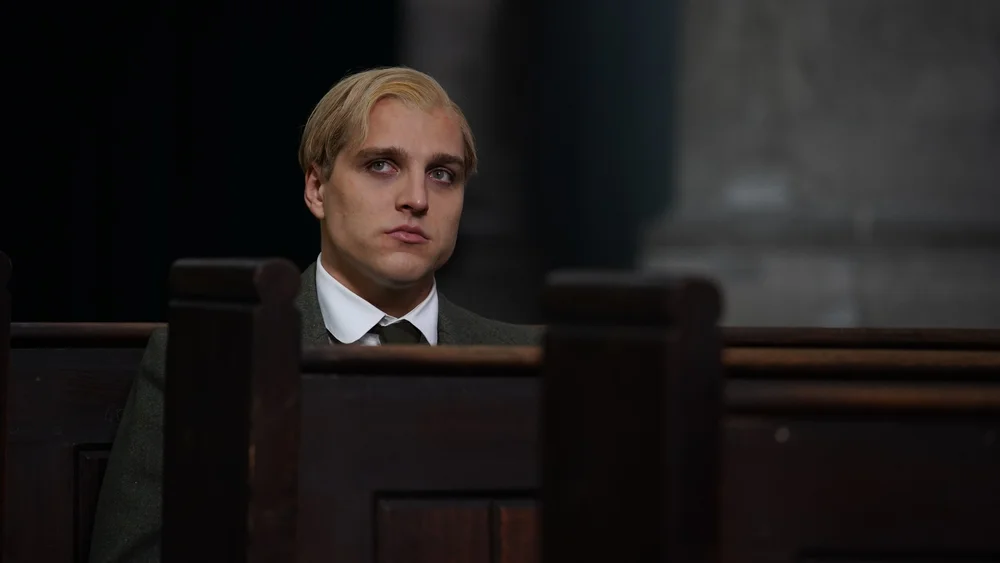
Images courtesy of Angel Studios
BONHOEFFER–3 STARS
The new Angels Studios film Bonhoeffer presents historical figures from an under-represented label from the greater World War II tapestry: a good German. Because of the popularity and sheer dominance of The Third Reich and its censorship efforts, the stories of anti-facist resistance within Germany itself– like the estimated 800,000 citizens arrested and imprisoned or as many as 77,000 executed for political reasons– are regrettably scant. Within those ranks are any number of unsung heroes and movie-ready stories. Through this biopic written and directed by Sully writer Todd Komarnicki, Dietrich Bonhoeffer is precisely one of those souls that deserve light shed upon them.
LESSON #1: THE DEFINITION OF A DISSIDENT– Dietrich Bonhoeffer, a man who wouldn’t see his 40th birthday and played by The Golden Glove’s Jonas Dassler, was many things that the movie’s marketing campaign wants to emphasize by using the extra titling of Pastor. Spy. Assassin. While over-selling one out of three of them (namely the last one), they sure do work to turn heads. However, the more apt descriptor for him would be a dissident. Resistance starts with disagreement before action. Bonhoeffer chronicles how Deitrich Bonhoeffer came to his dissident positions and how he would put those principles into service to honor of his beliefs and the greater good.
LESSON #2: SEE AND EMBRACE A DIFFERENT PLIGHT THAN YOUR OWN– One key component of Dietrich Bonhoeffer’s established tenets were the experiences he gained beyond his strict native country. During his formative twenties, starting in 1930, Dietrich educated himself and strengthened his religious faith in the Harlem neighborhood of New York City while attending Union Theological Seminary. Gaining friendships with Frank Fisher (Rye Lane’s David Jonsson) and Rev. Adam Clayton Powell Sr. (Clarke Peters of Da 5 Bloods), Bonhoeffer embraced the diverse culture and the all-encompassing fellowship among the African-Americans seen and heard at Abyssinian Baptist Church, even becoming one of their Sunday School teachers. He saw faith in God to a greater degree there while gaining vital empathy to their plight against ethnic and racial injustices.
Returning to his homeland, Bonhoeffer would arrive at the unfortunate opportunity to put that empathy and his mettle to the test against the rising influence and fascist power of The Third Reich. He joined many priests, including Martin Niemöller played by August Diehl of Inglourious Basterds and A Hidden Life, as a founding member of the Confessing Church. Despite enormous pressure and Gestapo threats, their sect would counter the revisionist changes being put into action by the pro-Hitler Germain Evangelical Church, particularly the anti-semetic and racist activities which flew against the values of Christianity and the traditional example of Jesus Christ.
LESSON #3: TAKE A STAND AND CAST YOUR GAUNTLET– Bonhoeffer reaches a gauntlet-casting peak when the returning Dietrich Bonhoeffer leads his first major sermon from the elevated pulpit at his home Berlin church. With a host of uniformed Nazi officers and Hitler loyalists in attendance, Dietrich gets his soapbox moment calling out the German church for allowing itself to become linked to a person rather than God, particularly after the altering of Jesus’s image to be more Aryan, the removal of crucifixes and saint-related images, the addition of two additional Commandments, and the recruitment of Hitler Youth poaching from the church community. With his voluminous philosophical defiance and political opposition of “This is not your house,” Bonhoeffer takes a stand that will put a bullseye on his back and raise both the risks and importance of the rest of the film going forward, especially once wartime hits its full swing and the score by Antonio Pinto and Gabriel Ferreira ups the sense of danger occuring all about.
In that moment, Jonas Dassler truly asserts himself in this star-making lead performance. Before this mid-film climax, his wide smile and calm demeanor beneath smooth blonde heair and a demure pair of glasses presented an endearing figure of brotherly love and kindness. But his released inner fire to vocally convey the title character’s strength and ideological conviction took Dassler’s presensce to another level. The support from an excellent August Diehl is greatly appreciated as well. Bonhoeffer utilizes Niemöller’s famous “First they came…” sermon a few years earlier that its actual placement in history, but that second pulpit moment fits and also creates a swelling and punctuating effect all its own.
Presenting this martyr’s journey in film form with some nonlinear hopscotch, Bonhoeffer is a difficult and laborious film from an entertainment standpoint, though it earns and cements its strong case of worthy cinematic hero worship for Dietrich Bonhoeffer. So often, it’s up to cultural endeavors like music and film to support and supplement the lessons and legends found in history books. Sadly, even noble efforts are subject to the types of improper takeovers shown in the film. Recently, a number of Bonhoeffer’s actors and creators issued a statement against the movie’s misuse by Christian Nationalists for all the wrong messages and reasons, proving that dangers from speaking out happened then and still happen now. Like the film itself relays, “every act of courage carries a cost.” Bonhoeffer proudly and properly fits that well-intentioned need and effort.
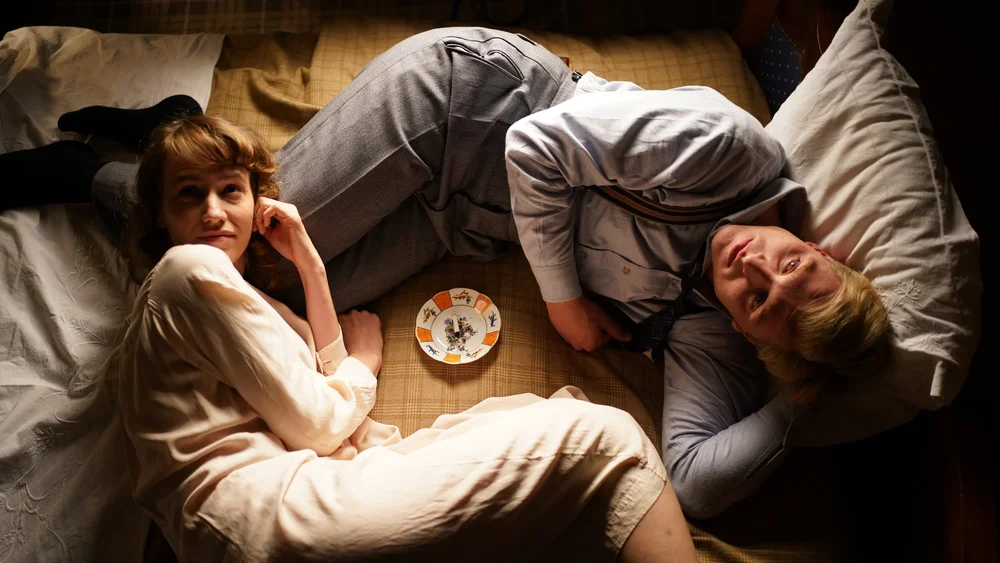
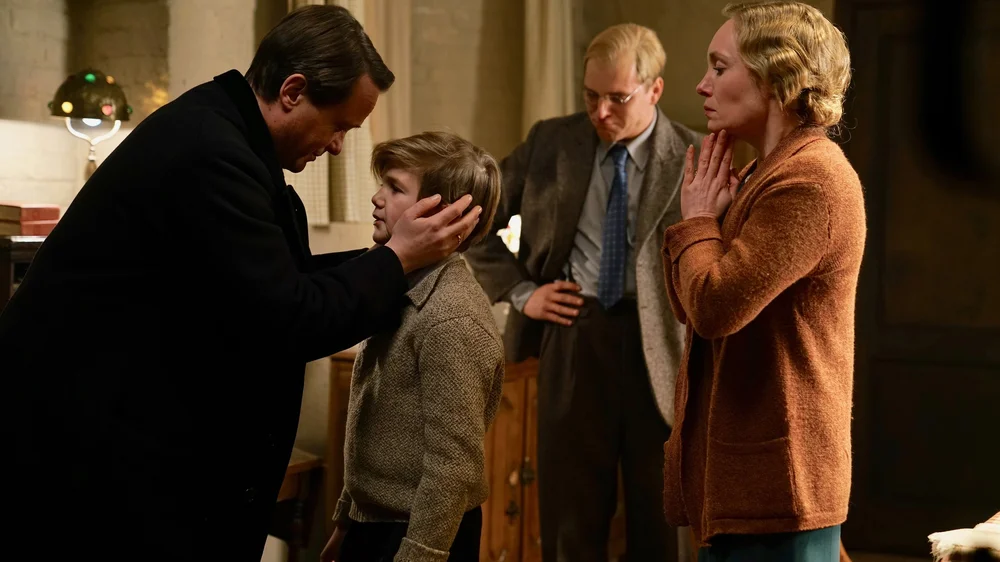
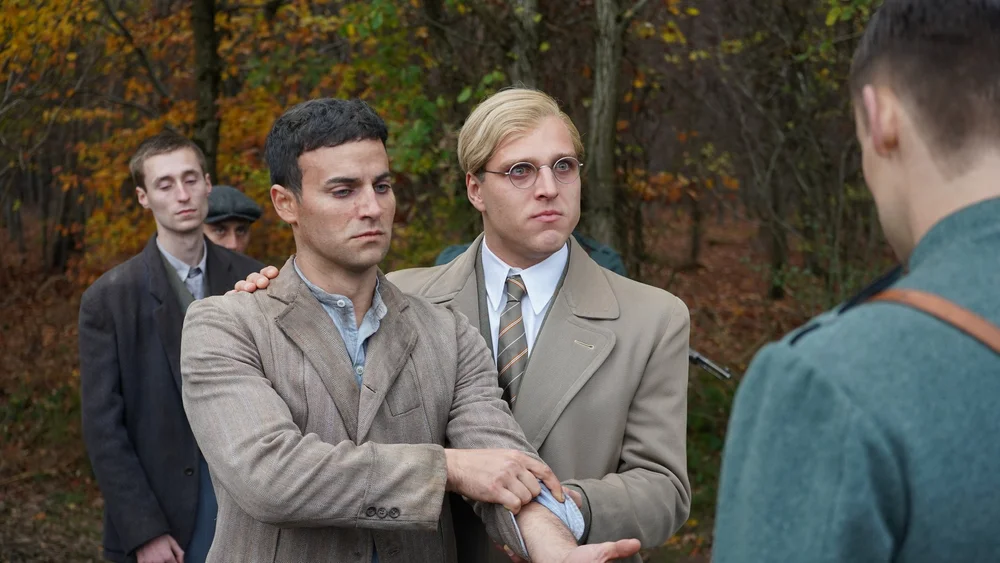
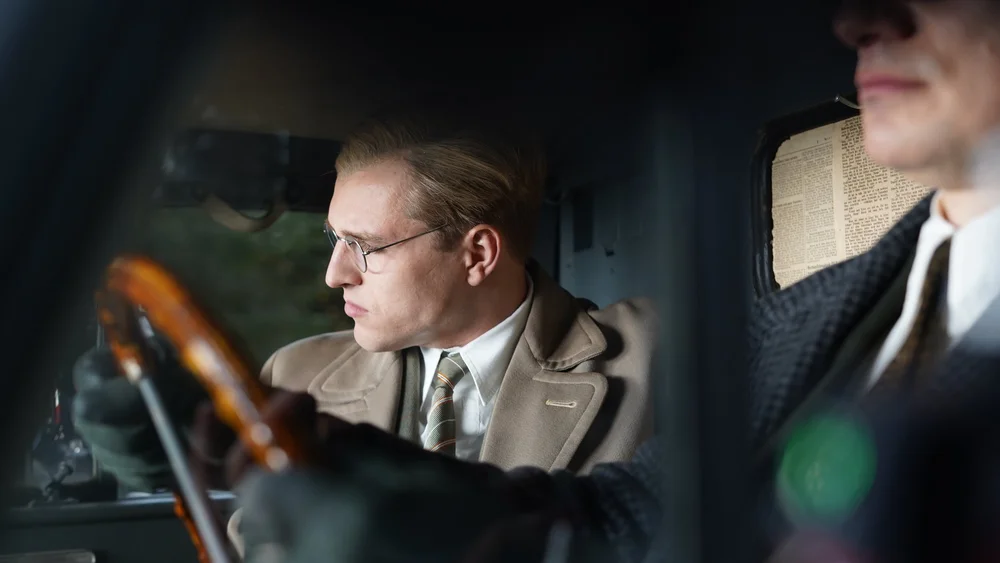
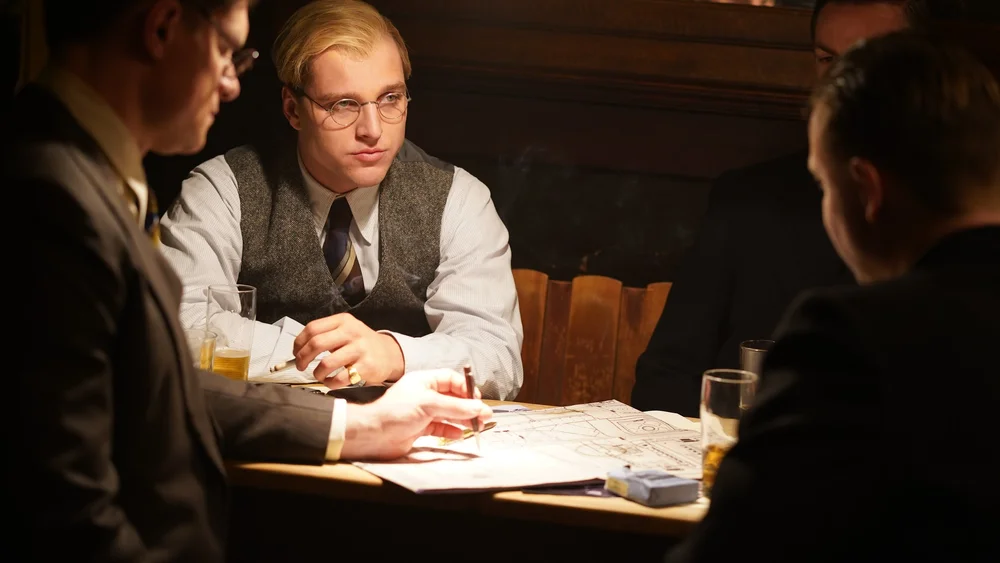
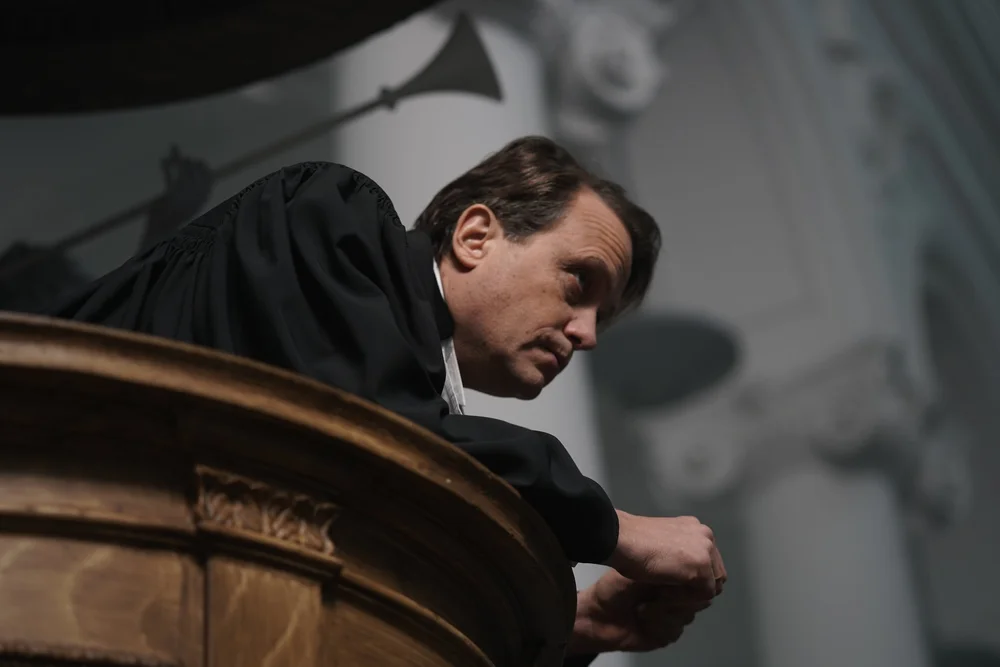



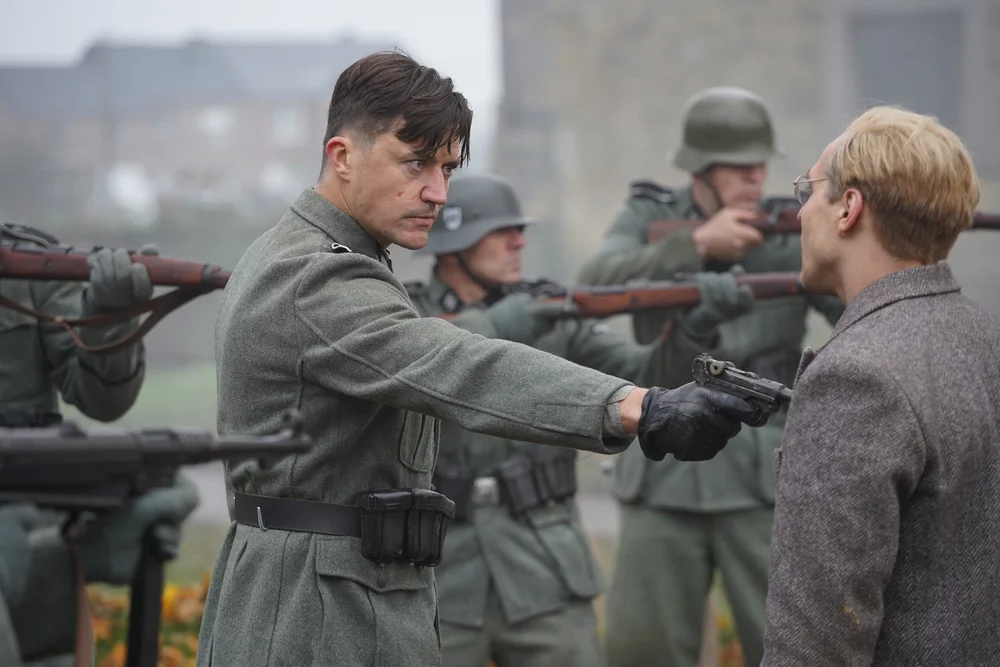

LOGO DESIGNED BY MEENTS ILLUSTRATED (#1246)
from Review Blog https://ift.tt/qIjnTJh







No comments:
Post a Comment